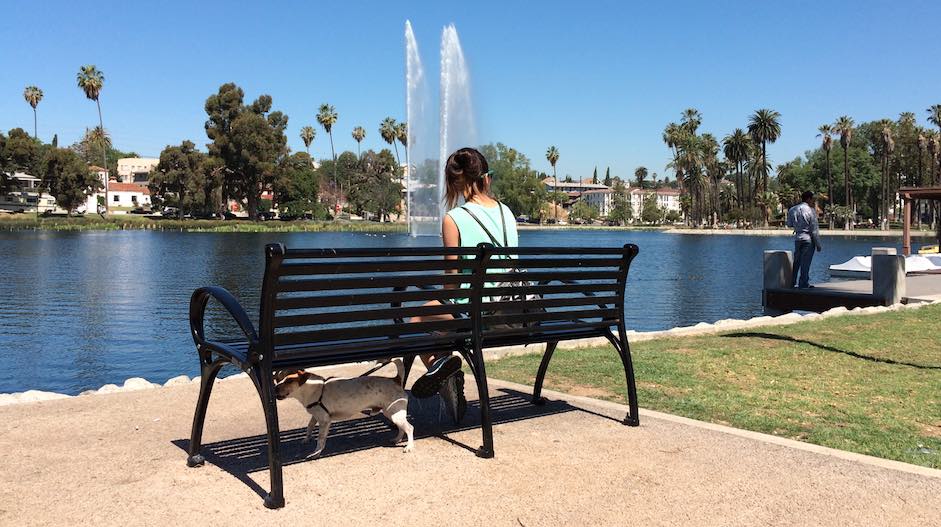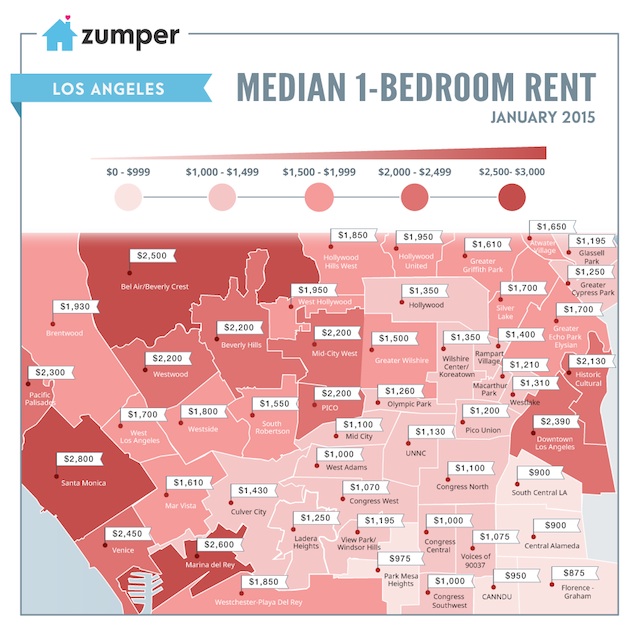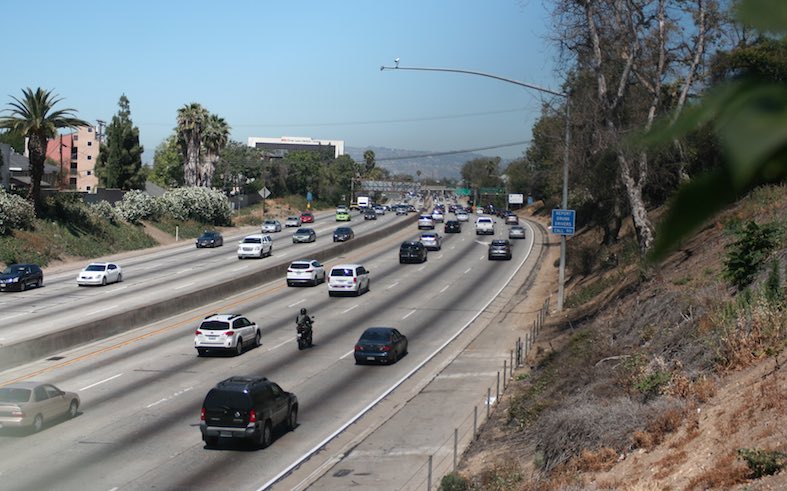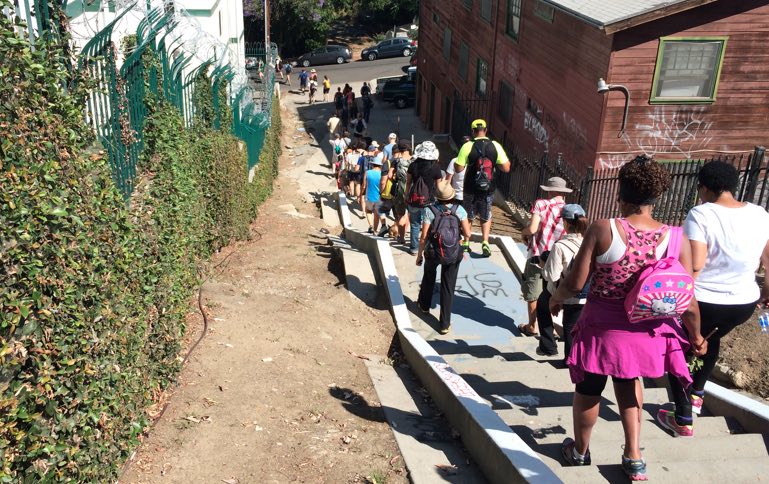When you’re looking for your next (or first) apartment in Los Angeles, the key is to start by asking yourself the right questions.
Through my ample experience apartment hunting in L.A. over the years I think I’ve gotten enough experience to distill a bit of wisdom on the matter.
advertisements
To that end, below I’ve compiled 10 essential questions every prospective mover ought to be wondering aloud before the lease is signed and the belongings are packed.
If nothing else, maybe taking a step back and considering all the angles will give you some food for thought next time you’re considering a move.
Hope it helps!
[RELATED: 10 Tips on Moving to Los Angeles Every Future Transplant Needs to Know]

1. What’s my situation?
For starters, take stock of why you’re moving to Los Angeles (or moving within L.A.) in the first place.
Student? New job? First job? Want to be closer to work, or friends, or family… or maybe you just really need a change.
As with any project in life, the better you can define the goal of what you’re trying to achieve, the more you can specify what ‘success’ should look like and then be content with the decision you made after fact.
My hope is that if you have a broad objective in mind, going through the below list of additional questions will help you paint a clear picture of success.
2. How much am I willing to pay?
The most obvious question, right? L.A., after-all, is a fairly expensive place to live.
According to recent data from the UCLA Luskin School of Public Affairs the average percentage of income spent on rent in Los Angeles is 47%. Compare that to the general budgeting advice of spending about 1/3 of your income (or less) on housing expenses, and you can see right off the bat how renting in L.A. gets pretty pricey pretty fast.
The truth is, sometimes this just can’t be helped (a consequence of the housing shortages and overall cost of living in Los Angeles) depending on what your job is and how much you make. Sometimes it’s the aspirational nature of the renter to live beyond their means.
I guess that only advice I can offer that is universally applicable then is this: be realistic about what you can afford. If overspending on an apartment puts you in a position where you’re net-zero (or worse) every month towards your savings, the complications will get really sticky when life puts an unexpected financial hurdle in your path.
That said, when you’re ready to scour neighborhoods and compare costs, start with this set of tools and see how far it gets you.

3. What’s parking like?
(Yes I’m going to assume you have a car)
If the place you’re looking at doesn’t have off-street parking, make sure you validate an assumption that you will be able to find parking during the peak competition times (i.e. right after work, overnight, etc…)
Take a drive through the neighborhood at various times of day… early morning, late afternoon, late night. The more detective work you do beforehand, the less surprises later on. Read the signs. Know the city laws regarding overnight parking.
When I used to live in Old Town Pasadena and my girlfriend would stay over we’d have to purchase permits from an automated machine each night because of city laws about overnight parking. It turned out to be a relatively minor inconvenience, but an inconvenience nonetheless.
Bottom line: consider not just your parking situation, but anyone who might come by to hang out (if that’s important to you).
[RELATED: Is Living in L.A. Without a Car Possible?]
4. How close is it to work?
As much as everything else of this list of questions matters, the proximity of your residence to where you work (and the commute in between) could be the most important element in how happy you are with your place.
According to a new study by Canada’s University of Waterloo, there is a direct link between commute time and well-being, with the upshot being that the detriments of a long commute may outweigh the benefits of making more money.
So if you have to pay just a bit more to shorten your commute time… it may be worth it.
And if a long commute simply can’t be helped, here is some sound advice on mitigating L.A. traffic.

5. Can I live with roommates… and can we get along?
You may find that living in the neighborhood of your preference comes at too high a cost to live on your own. Enter: The roommate.
If you’re going to live with a friend, prepare yourself going in for the fact that you’re going to find out more about that person that you possibly care to know, and the result of this intimate knowledge may change your opinion of them (i.e., they’re actually a disgusting slob).
On the other hand, if you’re going to chance it and move in with strangers, try your best to look for signs of crazy as best you can. Of course, the truly crazy ones usually find a way to put on a good front, so maybe it’s all a big gamble!
6. What’s my prospective neighborhood like?
For most people, after costs, they skip right over to this one.
Things like walkability, crime rate, schools (if you have kids), proximity to essential services and local entertainment options are all sub-questions that might be raised here. For some people, just being close to a certain ‘scene’ is enough to drive people towards particular enclaves.
I guess it’s all a matter of taste and needs, though I’ve found that the places I liked living in the best (Old Town Pasadena, Downtown Long Beach) were also the most walkable.
7. How is living there going to affect my social life?
As I mentioned in section #4, never underestimate the complications of distance in the city of angels.
advertisements
If you’re completely new in town, it’s nice to in an area that’s relatively close to a ‘happening’ social scene, or at least, central enough to let you explore many different parts of the city. The tendency of many Angelenos is to stay within their little geographical bubble, but i would heartily urge against that.
On the other hand, if you have an established group of friends who you want to maintain close contact with, don’t strand yourself on ‘freeway island’ (people who live deep in the South Bay know what I’m talking about).
In other words, if you decide to live in San Pedro and all your friends are up in Glendale, yeah, that might be a problem.
Bottom line: the farther away you are from things or people, the less time you’ll spend with them.

8. Am I going to hate my nextdoor neighbors?
Loud music? Loud dogs? Loud sex? And maybe all three at the same time bleeding through the paper thin walls of your new apartment.
It’s hard to asses exactly how good or bad your new neighbors might be, but sometimes just walking around a building / area and seeing what the general demographics look like will give you a broad idea (i.e. older: quieter, younger: louder)
And keep in mind, maybe it’s you who plans on being the noisy neighbor (hello: musicians, dog owners, etc…) so if that’s the case, be considerate and try to calculate the tolerance of your new neighbors to the new sounds you might bringing with you.
9. Have I thoroughly inspected my new place BEFORE I sign?
Even if you’ve honed in a specific unit in a specific neighborhood, make sure before you sign any lease make sure you’ve done your due diligence.
Sometimes it’s just the condition of your place. There’s a laundry of things you should be paying attention to including by not limited to cracks and holes in walls and ceilings, functionality of appliances, presence of mold, leaky fixtures, damaged furnishings (if furnished), and many more.
There are also specific guidelines set out by the state in terms of how much a prospective landlord is allowed to charge you for an ‘application fee’ so make sure you know your rights going in!
A great resource here to make sure you’re covering all angles is A Guide to Tenant’s Rights and Landlord Responsibilities created by the California Department of Consumer Affairs. Read up before you sign on the dotted line!
10. Does this feel like home?
The truth is that try as we might, most human decisions come down to a feeling at the gut level.
If you’ve asked yourself all the tough questions, performed your due diligence and made your comparisons, and even after all that you walk through the door of a prospective apartment / condo / home and you’re still getting the warm and fuzzies (and you can actually afford it) then you’ve found your winner.
advertisements
Next Steps
So you’re ready to take the plunge and find a new apartment around L.A.?
Here are your immediate next steps:
1) Assess your finances. How much can you really afford?
2) Have a plan. Bookmark the tools you’re going to use and define success.
3) Do the work. Hit the pavement, walk some neighborhoods, talk to friends for real-life feedback, scour Craigslist, and explore neighborhoods on your own to see what might be the right fit for you.
Above all else, just make sure you’re asking yourself the right questions. Like most things in life, if you do that, you usually end up in a pretty good place.
Good luck!
What did I miss? Comment below with other suggestions on things to consider when looking for a new place in L.A.
advertisements